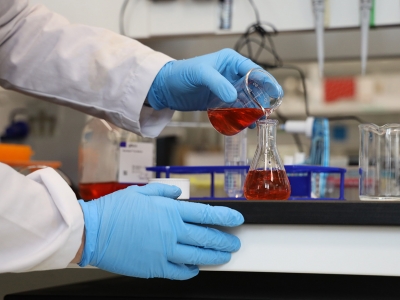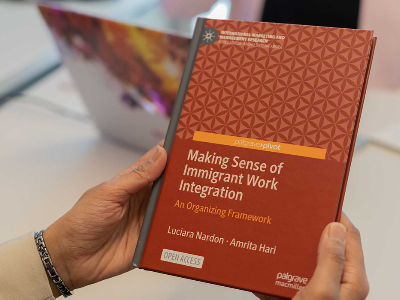By Elizabeth Murphy
Photos by Chris Roussakis
It’s a staggering figure – 429,000. “That’s how many people are estimated to die from malaria every year,” Melody Gavel told Carleton University’s Three Minute Thesis (3MT) competition. “This means that by the time I’m done giving this presentation, two more people will be dead.”
In addition to malaria, Gavel explained, mosquitos are transmitters of a host of diseases, including dengue, West Nile virus and zika. While these pests are a food source for amphibians, the world is facing a crisis as over a third of these natural predator populations are threatened with extinction.
“This is a problem because amphibians can eat thousands of mosquitos in their lifetime,” said Gavel, who took top prize at the event. “My research looks at the impact of pesticides on frog immune systems, specifically, I look at a type of pesticide called neonicotinoids.”
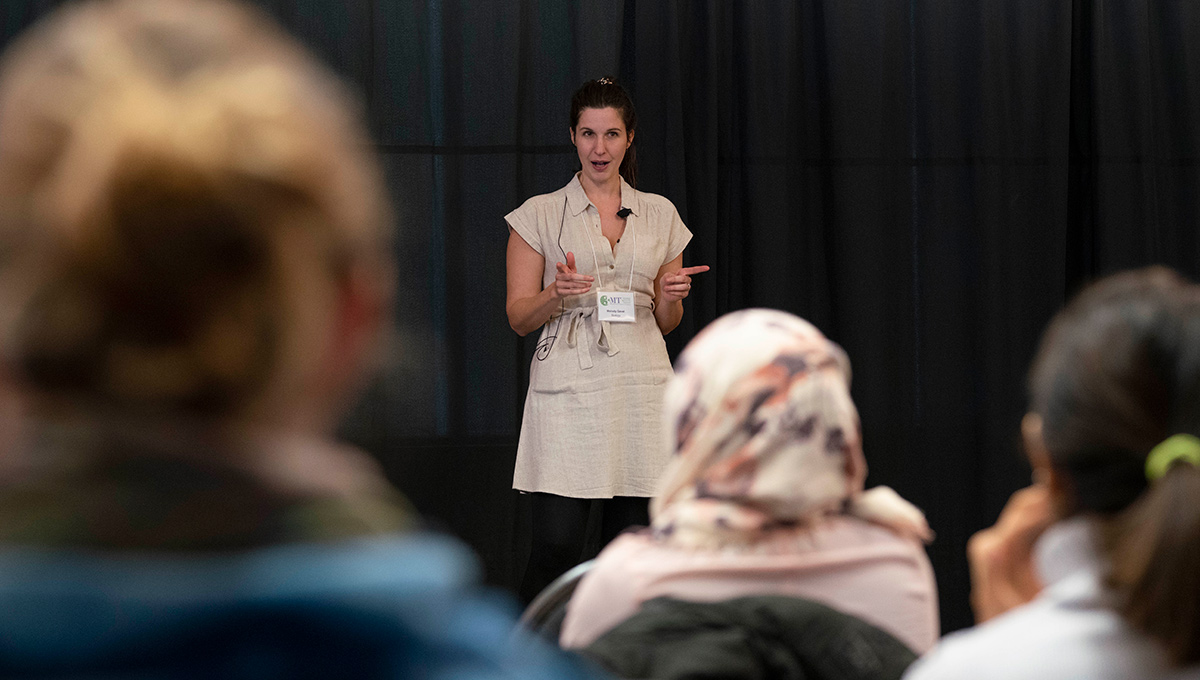
Melody Gavel
The widely used pesticide is best known for the threat it may pose to bee populations. Despite this reputation, the product is considered safe for the ecosystem.
“However, I have found the first evidence that these pesticides can have a negative impact on frog immune systems,” said Gavel.
“They can cause anemia and they can stress frogs out.
“A stressed frog is much more likely to be a dead frog.”
The master’s student from the Department of Biology delivered her winning research presentation at the annual event hosted by the Faculty of Graduate and Postdoctoral Affairs on March 13, 2019.
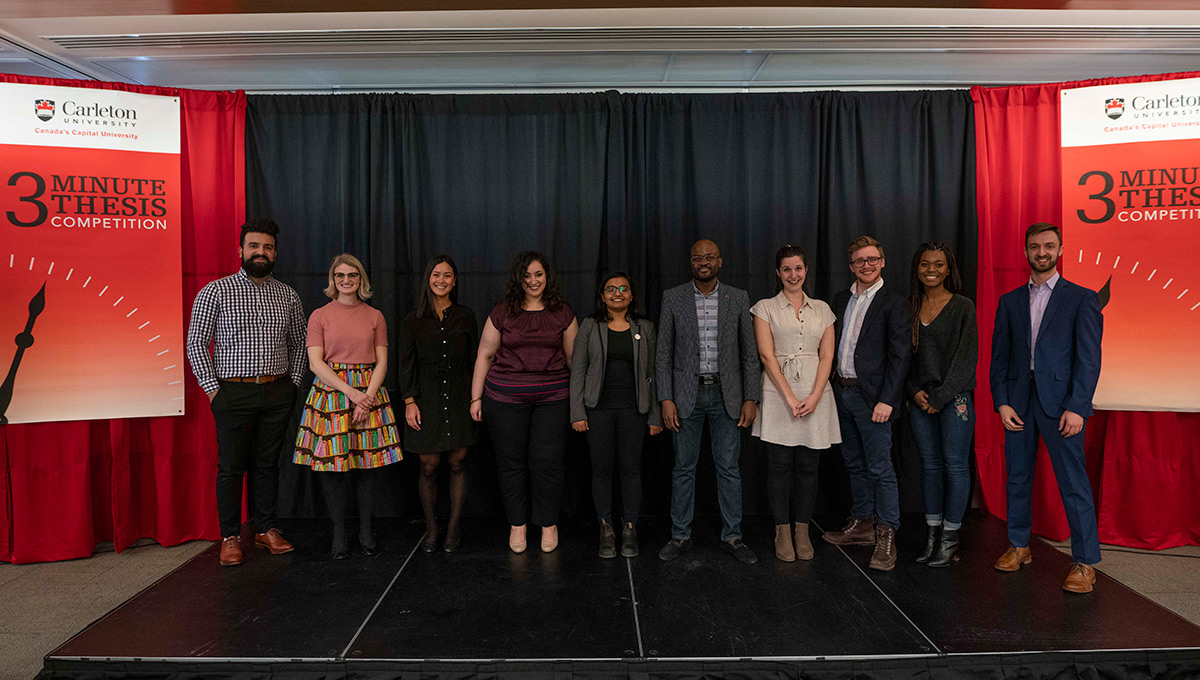
3MT Celebrates the Amazing Work of Graduate Students
Originally launched by the University of Queensland in Australia, the popular research communication contest has been held annually at Carleton since 2013. Out of a field of 19 contestants who participated in the morning’s semi-finals, 10 presenters were selected for the afternoon’s final round – each vying for the top spot and $1,000 prize.
“This is among my favorite events of the year,” said Dean Matthias Neufang, who acted as emcee.
“We are celebrating today the amazing work our grad students have done and are doing.”
“If I can find a link between exposure to these pesticides and more diseased and dead frogs, I can send this information to the regulatory agencies who make up the rules for what is safe and what isn’t for pesticide usage,” said Gavel.
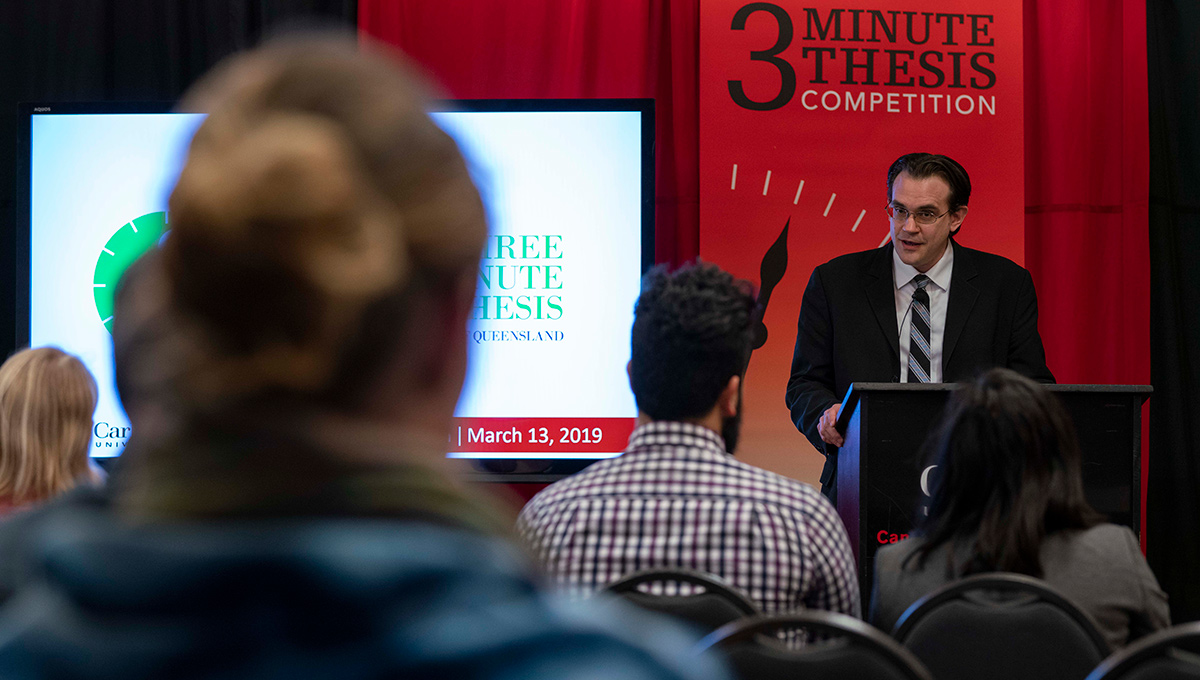
Dean Matthias Neufang
“If we can all stop the extinction of frogs, we can save lives.”
Gavel also garnered the audience’s nod of approval and scooped up the $250 people’s choice award. In addition to the cash prizes, Gavel will receive an expenses-paid trip to the 3MT Ontario provincial competition to be held April 17, 2019 at McMaster University in Hamilton.
3MT competitors must be registered in a Carleton masters or PhD program. Using only a single PowerPoint slide that is limited to images and text, the contestants present their research without the use of videos, props or cue cards. The subject matter had to be related to their graduate work. Any presenter exceeding three minutes is disqualified.
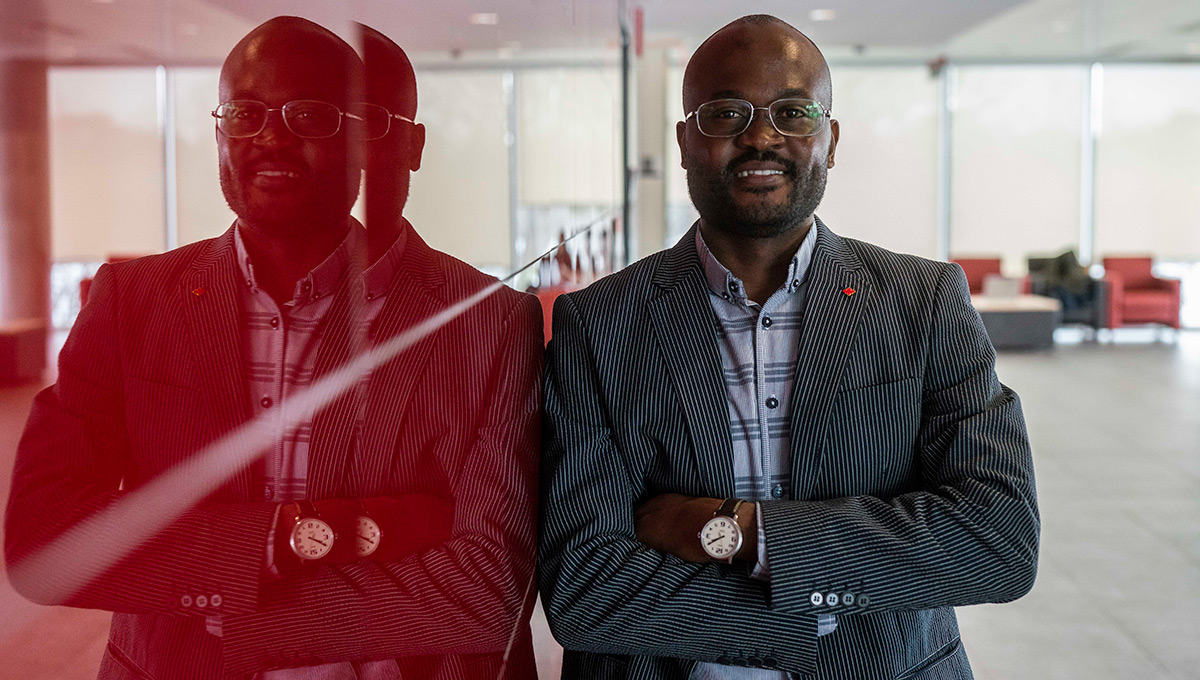
An Airborne Network of Drones
Taking second place was Jean-Daniel Medjo Me Biomo, a doctoral student from the Department of Systems and Computer Engineering for his fascinating presentation An Airborne Network of Drones. He began by explaining two search and rescue operations assisted by drones, the first searching for trapped people in the wake of Hurricane Harvey, the second locating the victim of a car accident on a cold night. In both instances, the clock was ticking to ensure people’s safety.
“My research can help us do this work even better, we can search larger areas in less time,” said Medjo Me Biomo.
“How? By doing two things. First, deploy a large number of drones as an airborne network where the drones actually talk to one another by means of data packets. Second, minimize the delay of those data packets by choosing their routes smartly.”
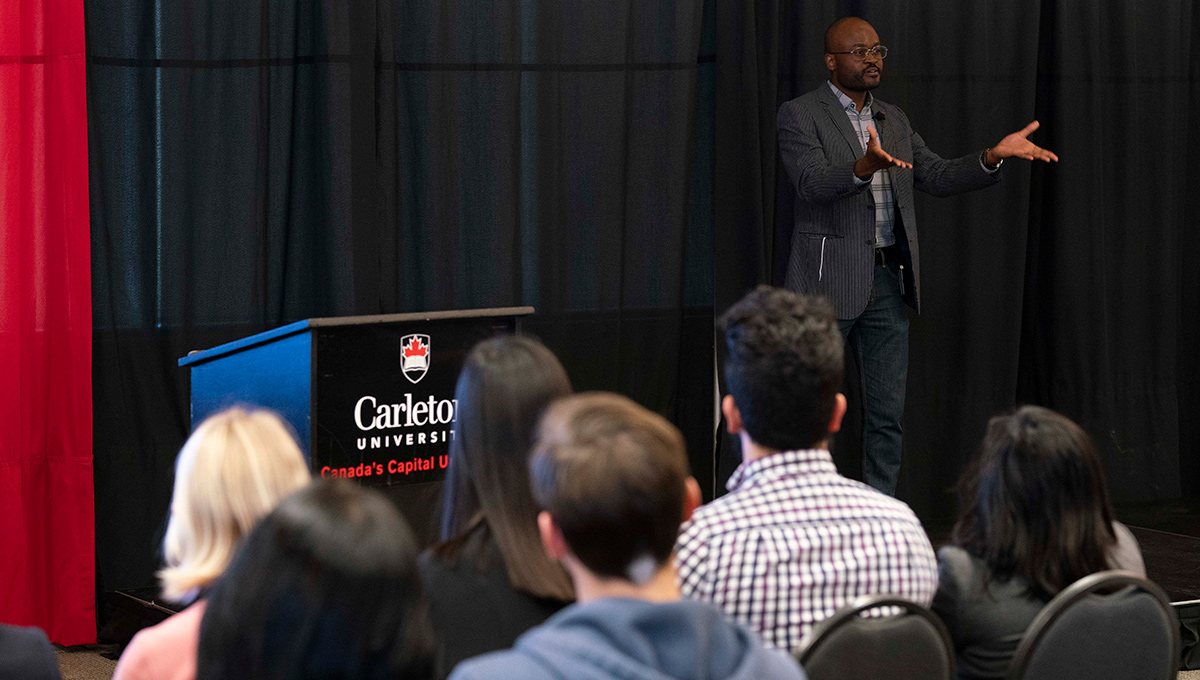
Jean-Daniel Medjo Me Biomo
Medjo Me Biomo used the example of a traffic jam to explain the importance of choosing the best route for data packet transmission between drones in a network.
If its rush hour, the route that is the shortest may also be the busiest and result in the slowest flow of traffic. In some cases, a route that is longer but less busy can get a car to its destination faster. Medjo Me Biomo’s research focuses on getting drones to dispatch data packets efficiently – similar to a driver’s selection of an optimal route home.
“Ladies and gentleman, when it comes to using a network of drones for a rescue mission, time is of the essence. We cannot afford a split-second delay when human lives are on the line.”
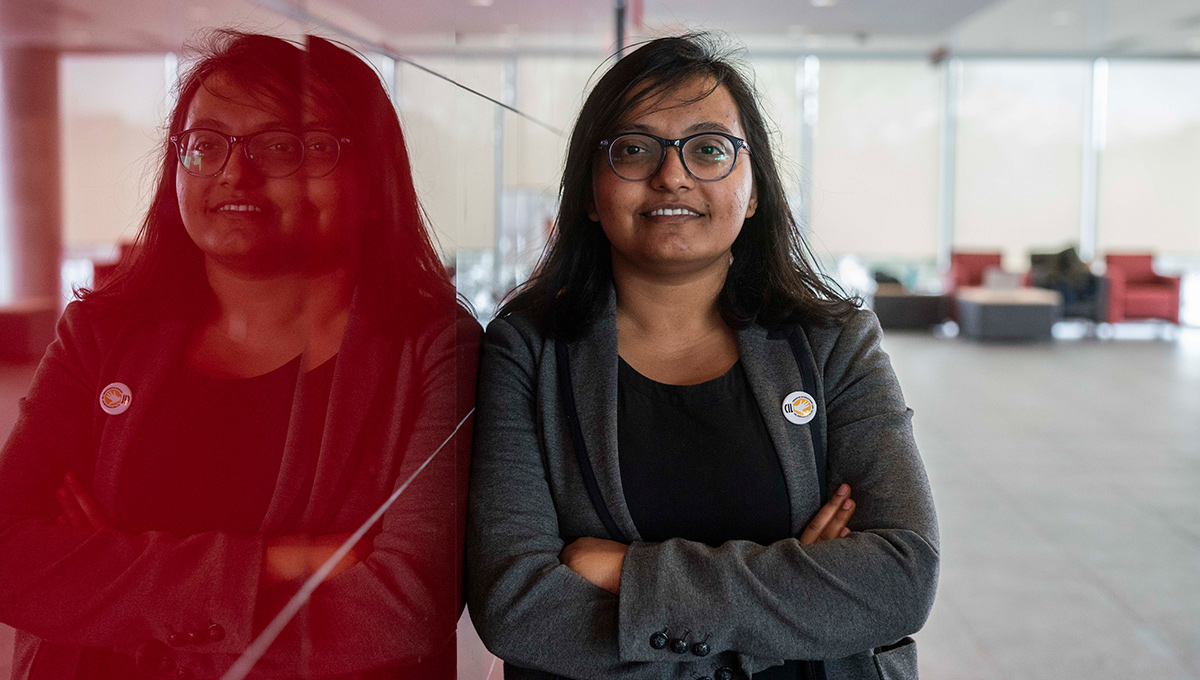
Fighting Repetitive Strain Injuries with Nonintrusive Reminders
Rounding out the winner’s circle, the presentation Shape-Changing Break Reminder for People with Repetitive Strain Injury by Aditi Singh, a master’s student from the Human-Computer Interaction program, won third place. In her presentation, Singh noted the importance of taking micro-breaks every hour for people to offset the damages of sitting, and the challenges of developing a nonintrusive reminder system.
“Now, imagine a flower sitting on your desk,” Singh said as she referred to two images of a mechanical flower on a desk, first blooming tall and then wilted. “It senses your sitting duration and when it’s time, it slowly, quietly withers to suggest: ‘Hey, maybe you could use a break!’”
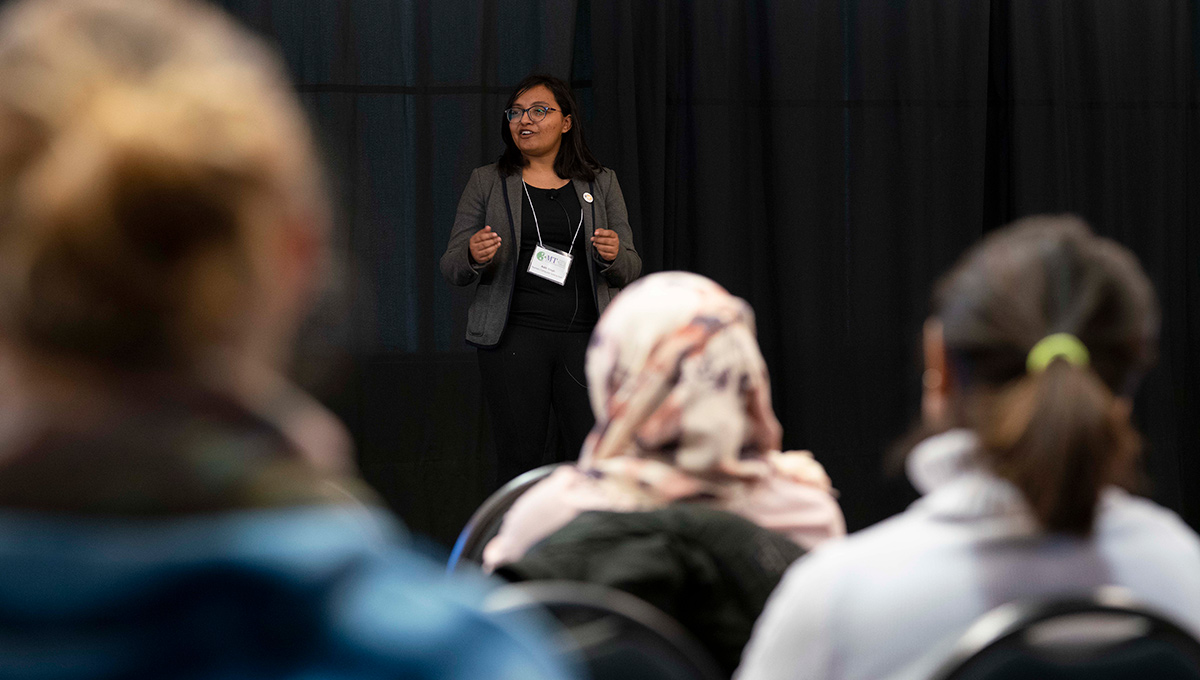
Aditi Singh
The benefit of this novel product is the nonintrusive nature of the reminder. As part of her presentation, Singh stressed the need to immerse the design process in the real-world context of people with repetitive strain injuries and include their voices early.
“My research is the first to address computer-related repetitive strain injury by bringing insights from people who actually experience it,” says Singh.
“These new insights will inform the future of design for well-being at work.”
Singh received a $250 prize in recognition of her excellent presentation.
Thursday, March 14, 2019 in Faculty of Graduate and Postdoctoral Affairs, Research
Share: Twitter, Facebook

